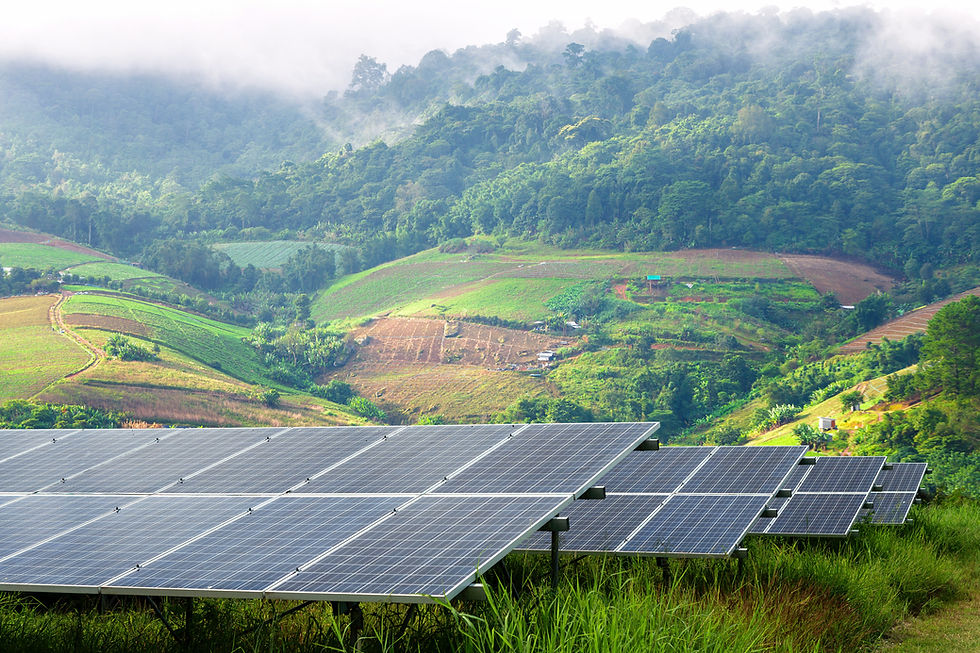The Transition to Solar Energy in Rural Communities: A Bright and Sustainable Future
Rural communities around the world are undergoing a significant transformation thanks to the adoption of solar energy. This transition is not only reducing dependence on fossil fuels, but is also improving the quality of life for people living in remote areas. In Spain in particular, the energy transition in rural areas is gaining momentum, albeit with unique challenges that still need to be overcome.

Solar Energy: A Transformative Solution
In many rural communities, access to electricity has historically been limited, due to a lack of infrastructure and the high cost of expanding conventional power grids. This is where solar energy is making a crucial difference. Various companies are leading the way in installing solar photovoltaic systems that allow these communities to generate their own electricity in a sustainable manner.
Key Benefits of Solar Energy in Rural Areas:
Energy Self-Sufficiency: The installation of solar panels allows rural communities to generate their own electricity, thereby reducing their dependence on traditional power grids and, in many cases, eliminating their electricity bills altogether.
Access to Reliable Electricity: Solar energy provides a consistent and reliable supply of electricity, even in areas where power outages are frequent. This is critical for daily life, education, and local businesses.
Economic Benefits: Investing in solar energy can translate into additional income for rural communities, either through the sale of surplus energy to the grid or through government incentive programs.
Environmental Care: Solar energy is an ecological option that contributes to the reduction of carbon emissions, helping to protect the natural environment surrounding these communities.
The Case of Rural Spain: A Process in Progress
In Spain, the transition to cleaner and more sustainable energy in rural areas is underway, but it faces significant challenges. According to the third report of the Rural Decarbonisation Observatory , prepared by the association of small electricity distributors CIDE, Spanish rural areas have a level of electrification 15 % lower than the national average. This not only implies a greater dependence on fossil fuels, but also exacerbates economic inequalities, as the average income level in these households is 19% lower than the national average.
The report highlights that one of the main barriers to the adoption of solar energy and other sustainable technologies in rural areas is the high cost of acquisition . This obstacle affects both businesses and rural households, limiting the pace of the energy transition in these regions. In addition, the lack of public charging infrastructure for electric vehicles and the lack of awareness of available support are other significant barriers.
According to the third report of the Rural Decarbonisation Observatory , prepared by the association of small electricity distributors CIDE, rural areas in Spain have an electrification level 15 % lower than the national average.
Perspectives and Opportunities
Despite the challenges, rural Spain has enormous potential for decarbonisation , especially through the expansion of solar energy and the creation of energy communities. The government, together with associations such as CIDE, is working to overcome these obstacles by developing key infrastructure and promoting environmental education and awareness.
The Secretary of State for Energy, Sara Aagesen, has stressed the importance of the energy transition reaching all regions of Spain, including rural areas. "The success of the energy and ecological transition is measured by whether progress reaches all territories at a good pace. There is still much to do, but we are perfectly prepared for it," she said during the presentation of the Observatory.
For his part, the Minister of Industry of Andalusia, Jorge Paradela, highlighted the crucial role of small distributors in this process, stating that Andalusia has a unique opportunity to lead the transition towards a more sustainable economy, taking advantage of its natural resources and geographical location.
"The success of the energy and ecological transition is measured by whether progress is being made at a good pace and in all territories. There is still a lot to do, but we are perfectly prepared for it," Sara Aagesen
A Bright Future for Rural Communities
The transition to solar energy in rural communities, both in Spain and elsewhere around the world, is more than just the adoption of a new energy source. It is a movement towards a more self-sufficient, sustainable and equitable future. As financial and infrastructure barriers are overcome, these communities will be better positioned to reap the benefits of clean energy, improving their quality of life and contributing to the global fight against climate change.
With sustainable initiatives and government policy support, the path to a solar revolution in rural areas is increasingly clear, promising a future illuminated by the energy of the sun.
Comments